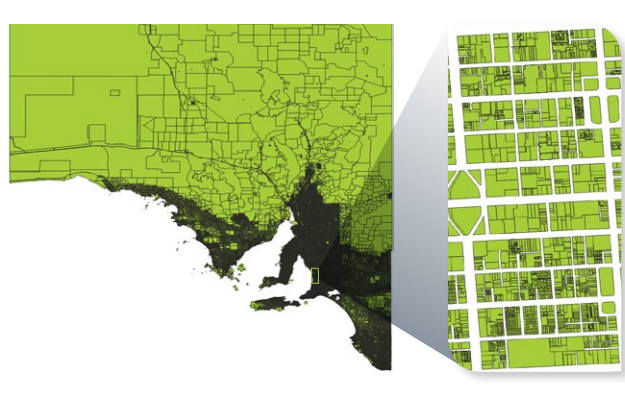
INFRASTRUCTURE
Infrastructure represents the starting points from which local self-government units must start in order to establish effective electronic governance. Segments of infrastructure concern the available capacities of the municipality/city in the form of technical equipment of the LGU itself, as well as the officials who carry out these procedures, financial capacities, as well as its up-to-dateness in keeping registers, which are the basis for efficient management of electronic procedures. Investments in infrastructure are the most common and biggest investments, but with good planning, these investments pay off many times over, for citizens and for the administration itself.

Criteria 1.1
Broadband Internet, comprising technologies enables high-speed Internet access. The extensive coverage of broadband across territories allows a larger population to benefit from the Internet's capabilities. Electronic administration, one such advantage, becomes accessible to citizens due to broadband connectivity. Through this, individuals can conveniently engage with government services, perform administrative tasks online, and access vital documents. Broadband Internet fosters efficient and streamlined electronic administration, facilitating seamless interactions between citizens and the government in a digital society.
methodOfMeasurement
- This indicator can be measured in the municipality by conducting surveys or utilizing data from internet service providers to determine the percentage of households with broadband internet access.
- Additionally, monitoring and analyzing internet speed tests can provide insights into the average download and upload speeds experienced by users, allowing for an assessment of the quality and performance of broadband connections in the country.
institutionsSpecificDocument
Agency for Electronic Communications (AEK):
- Reports on performed measurements for TC infrastructure
- Annual market analysis reports
Method of scoring
01
Result: Limited coverage
Explanation: The availability of broadband internet in the territory is minimal, with only a few selected areas or a small percentage of the population having access to high-speed internet services.
02
Result: Partial coverage
Explanation: Broadband Internet coverage is partial in the territory of Macedonia, with high-speed Internet services available in some regions or a moderate part of the population.
03
Rating: Moderate coverage
Explanation: Broadband Internet is moderately available on the territory of Macedonia, with a decent portion of the population having access to high-speed Internet services, although certain areas may still have limited connectivity.
04
Result: extensive coverage
Explanation: Broadband Internet coverage is widespread in the territory of Macedonia, offering fast Internet access to a significant majority of the population, but with possible isolated areas that still have limited connectivity.
05
Rating: comprehensive coverage
Explanation: Broadband Internet coverage is comprehensive throughout the territory of Macedonia, providing almost universal access to high-speed Internet services for citizens, with minimal areas of limited connectivity.

Criteria 1.2
The average age of systems used in local government refers to the typical lifespan and obsolescence level of computer infrastructure employed for administrative procedures. Assessing this metric is crucial in understanding the readiness of public institutions in North Macedonia for digitalization, highlighting the importance of investing in modern and up-to-date technology to enhance efficiency, effectiveness, and service delivery in the digital era.
methodOfMeasurement
- To measure the average age of systems used in local government per municipality, a comprehensive inventory can be conducted to assess the age of existing computer infrastructure in administrative offices.
- This can involve collecting data on the installation or purchase dates of computers and related hardware, which can then be analyzed to determine the average age of the systems.
institutionsSpecificDocument
- Census list of the municipality (Census amortization list of basic assets of the municipality)
- Ministry of Information Society and Administration
Method of scoring
01
Score: 1
02
Score: 2
03
Rating: 3
04
Rating: 4
05
Rating: 5

Criteria 1.3
The average age of systems used in local government refers to the typical lifespan and obsolescence level of computer infrastructure employed for administrative procedures. Assessing this metric is crucial in understanding the readiness of public institutions in North Macedonia for digitalization, highlighting the importance of investing in modern and up-to-date technology to enhance efficiency, effectiveness, and service delivery in the digital era.
methodOfMeasurement
institutionsSpecificDocument
Method of scoring
01
Score 2: Yes
02
Score 1: No

Criteria 1.4
The average age of systems used in local government refers to the typical lifespan and obsolescence level of computer infrastructure employed for administrative procedures. Assessing this metric is crucial in understanding the readiness of public institutions in North Macedonia for digitalization, highlighting the importance of investing in modern and up-to-date technology to enhance efficiency, effectiveness, and service delivery in the digital era.
methodOfMeasurement
institutionsSpecificDocument
- E10:E15
Method of scoring
01
Score 2: Yes
02
Score 1: No

Criteria 1.5
methodOfMeasurement
institutionsSpecificDocument
Method of scoring
01
Score 2: Yes
02
Score 1: No

Criteria 1.6
methodOfMeasurement
institutionsSpecificDocument
Method of scoring
01
Score: 1
02
Score: 2
03
Score: 3
04
Score: 4
05
Score: 5

Criteria 1.7
methodOfMeasurement
institutionsSpecificDocument
Method of scoring
01
Score 2: Yes
02
Score 1: No
